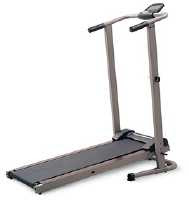Shock, devastation, anger, confusion, depressed these are the emotions one feels when recently faced with a job dismissal. The former employee walks away questioning what went wrong? He or she may not have felt at peace with the administration's answer. They may have been vague about their reasons are extremely detailed.
All the while, he or she may be thinking what went wrong? Questioning whether his or her actions were that bad for it to come to this. Others may feel as if there was a conspiracy to get rid of them all along. Despite the reasons, it is now an unwelcoming reality that one has to face. Therefore, how does one move on past the upset and on with looking for another job?
First, find a place of solitude after you have received the bad news. Take control of every negative emotion you must be feeling, before you share it with anyone. You do not want to discuss the recent events upset, emotional and confused. Tell yourself, "Everything happens for a reason, although I may not know exactly why, somehow I am going to make the best of this."
Second, make a phone call to meet with a confidant. This will provide you with the opportunity to vent, get what is off your chest. He or she may be a good listener and advisor, consider what he or she is saying. State how you feel, but don't wallow in your anger, sadness or any other emotion for too long. You don't need your situation to dominate a good time with a friend and consider he or she may have their own frustrations they may want to talk about.
While you are venting, there will be the temptation to say something about your former employer that even your closest confidant may have to scold you for and that is the last thing you will want to hear is an admonition or what seems to be well meaning advice. The reality is they are not experiencing what you are going through and your situation is not up for debate or criticism.
Avoid people who you know have been unsupportive in the past no matter how desperate you are to make contact with someone. This is not the time to defend your thoughts, or get angry with the person whom you are confiding in that will only result in a heated argument. Later, you may feel even worse for blowing up at your confidant and will have to apologize. Remember you may need this person to help you financially, physically and/or mentally in the future; therefore watch what you say and how you say it.
Third, after you have confided in everyone you have chosen, you may be tempted to wallow in your firing. You may not start looking for a job immediately; instead, you may want to take a needed break. There is absolutely nothing wrong with that if you are doing something productive other than sitting on the couch thinking about the job, calling up former co-workers gossiping or mentioning the event every time someone makes contact with you.
Utilize this time to apply for unemployment, catch up on all doctor's appointments (before your insurance runs out), meet with family and friends you haven't seen in awhile, take a class in your career field or in one you may desire. Consider taking up a hobby such as reading books, writing, singing, dancing, painting, watching TV (if you haven't been doing much of that in the past), aerobics, hiking, running and many others. However, if you aren't ready for the intense physical activity, then browse stores, walk the beach, tour museums and other places to take your mind off of things.
Noticed shopping was not listed, because spending money is only a temporary fix and since you have no income coming in the last thing you need to do is have money going out. Be sure to take care of your necessities and save as much money as you can, because unemployment doesn't last forever and can be cut off before you know it.
During this time of rest and relaxation, your motivation to get back in the workforce will be challenged. Who wants to return back to work, when someone is helping you financially, the beach keeps calling your name and you have enjoyed waking up without an alarm clock? As nice as all of this sounds, it is only temporary and if you don't want your free time to come to a crashing halt, dedicate hours each day, like you would working a part-time job, applying for jobs.
However, before you begin your search you will need to know whether you would like to stay in the same career field, switch to another or just find a job that is not challenging in the least and will only provide you with a paycheck.
Find out how much others are making in your occupation, what are the latest skills in demand, create your cover letters and tailor your resume for each job that isn't in your career field. Too often people will send the same general resume to every employer and wonder why no one is calling them back. You may have too much information on your resume for what is required or not enough. Consider the following as you job search checklist:
Create different resumes for different career fields.
Join online databases that send employment classifieds directly to your email.
Sign up for a subscription to a newspaper.
Register with a temporary agency.
Check with family and friends to see what they know.
Purchase office supplies such as ink for your printer and/or fax machine, mailing labels, impressive envelopes and quality white paper, and stamps.
Create a mailing list of employers that may or may not be hiring. Print addresses on mailing labels. Send a letter along with your resume requesting that they consider including you in their database for a future job opening. Of course, you can always pick a great location nearby your neighborhood and work one or two part-time jobs. The advantage to this is you will not be stuck at one location everyday, more money can be made this way, and some stores offer great perks.
Depending on how much money you have in savings, you may think about starting a business from home. A successful business doesn't become that way if you don't have the necessary tools to make it happen. Spend the time reading about what type of business you would like to start, how to develop a business plan so that you will know what to expect in the future, where you can get additional money to get it started, and any other information that will help you make a determination on whether this is a good time to start it or not.
Lastly, while you wait for responses from employers, be sure that you can be contacted. If you have a single phone line with no call waiting, you may want to have your cell phone number and email address on every cover letter, resume and/or business card you send out. Don't become discouraged when week three passes by and you still haven't heard from anyone. Instead, you will need to change the way you have been marketing yourself. Request a person knowledgeable in cover letters and resumes to review yours.
Search the Internet, ask for comments from a job headhunter, or purchase a book that will provide you with tips on how to best edit it. Asking a family member or friend isn't the best way to get an unbiased opinion; therefore don't request their opinions unless they know about your industry. Be sure that you have tried every way to market yourself. Have you posted a classified of the services you can offer to your community? Have you sent a mass mailing out to employers rather than just two or three resumes? Did you include yourself in a variety of databases both on and offline such as visiting temporary agencies also known as headhunters? Did you send copies of your resumes to people who would be willing to help you market yourself? When did you last follow up with an employer about your resume (are you keeping record)? Are you allowing yourself to be reachable?
When you do hear from a prospective employer, be sure that you are prepared! You have the business attire picked out that you will be wearing, updated copies of your resume (error free and readable,) list of references, a social security card and an updated id or driver's license, copies of any necessary certification or medical information, samples of your work that is related to the position, and a nice briefcase or similar business accessory.
Think about the kinds of questions you may be asked during the interview, and turn every negative event you have ever had at any job into a positive one. For instance, when asked what would you consider one of your weaknesses? Your answer may be, "Not knowing when to go home, I become very engrossed in my projects and my former bosses have had to cut the lights off on me." The employer will be watching for signs of mental stability, whether you are responsible, truthful, positive, professional, goal oriented, loyal, and many other attributes that will convince them that you will be an asset to their organization. Put your best foot forward!
Written by Nicholl McGuire




